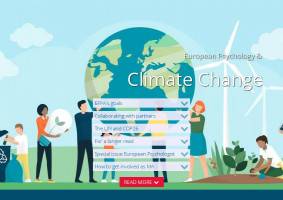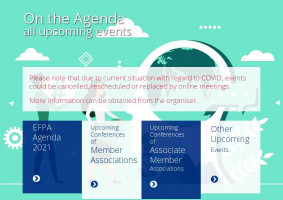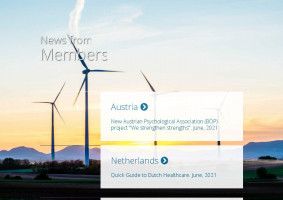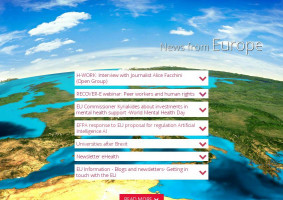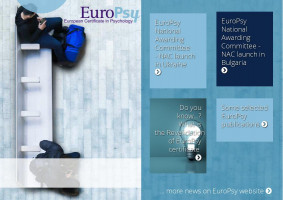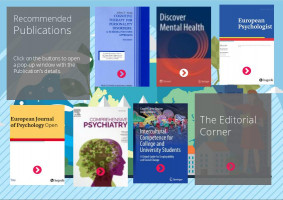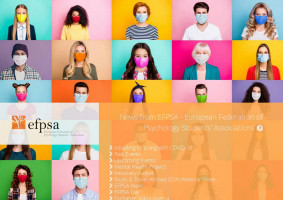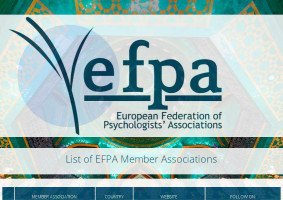Cognitive Therapy for Personality Disorders: A Schema-Focused Approach
By Jeffrey E. Young.
An excellent guide to treating the most difficult cases in your practice: personality disorders and other chronic, self-defeating problems. The author describes how he adapted traditional cognitive therapy techniques to more effectively treat patients with narcissistic, borderline, passive-aggressive, dependent, and other personality disorders, as well as chronic dysthymic and anxious patients. Contains rationale, theory, practical applications, and active cognitive behavioral techniques. Presents an extended case example, and updated versions of the Young Schema Questionnaire, a Client's Guide to this approach, and schema listings.
Learn more and order the book here
Abstract:
Climate change represents a major global challenge. Some hallmarks of climate change that have been connected to human activity include an increase of 0.8–1.2 °C in global temperatures as well as the warming of upper ocean water. Importantly, approximately 500 million people worldwide face the consequences of desertification. Simultaneously, the world population has grown from 1.6 billion in 1900 to 7.7 billion today, greatly exacerbating the human toll of devastating environmental disasters, which result in increasingly larger and more common mass migrations that also fuel human trafficking and modern-day slavery. The mental health outcomes are staggering and include, in the context of chronic stress, addiction, anxiety disorders, post-traumatic stress disorder (PTSD), bipolar disorder, major depression, and suicidality. Mental health practitioners, healthcare systems, and governments across the world need to be prepared to address the mental health sequelae of climate change.
The climate of our planet has always changed. However, that has happened in very extended geological epochs, while life exists in a much more abbreviated biological lifespan. What are the effects on mental health when the geological time frame of climate change is accelerated into our own biological time frame?

Volume 26, no.3 is now available online
Editorial
Psychology and the Environmental Crisis
Original Articles and Reviews
Responding to Climate Change Disaster. The Case of the 2019/2020 Bushfires in Australia
Climate “Psychopathology”. The Intersection of Mental and Physical Health in the Climate Emergency
Health Behavior and Planetary Health. A Multi-Level Environmental Health Approach
European Journal of Psychology Open (EJPO)
Volume 80, issue 1-2 is now available online
Special Issue: Perspectives on the Psychological Impact of COVID-19 Across the World (Part 1)
Senior Editors: Prof. Georgia Panayiotou, Prof. Samuel Greiff
Frequency: quarterly
Editorials
New Beginnings, New Challenges
Inaugural Issue of EJPO Responds to the Covid-19 Crisis
Original Articles
Adult Mental Health and Loneliness During the COVID-19 Pandemic in Late 2020
Mental Health and Well-Being During the First vs. Second COVID-19 Pandemic Lockdown in Cyprus
Mental Health Status of Healthcare Workers During the COVID-19 Outbreak - An International Study
- Volume 109, August 2021
Media use before, during and after COVID-19 lockdown according to parents in a clinically referred sample in child and adolescent psychiatry: Results of an online survey in Switzerland
Anna Maria Werling, Susanne Walitza, Edna Grünblatt, Renate Drechsler
Abstract
Background
To investigate the consequences of COVID-19 lockdown on screen media use in children and adolescents with mental health problems, an online survey was conducted on leisure media use before, during and after the lockdown of spring 2020.
Method
Parents of patients (10-18 yrs) referred to child and adolescent psychiatry participated in an anonymous online survey, approximately six weeks after the first easing of lockdown measures. Parents rated the amount, the content and the psychological impact of their children's media use before, during and after the lockdown.
Results
N = 477 parents completed the survey. Patients showed a significant increase in media time during the lockdown (including devices such as mobile, tablet/PC, video game console, TV, and activities such as gaming, social media) and a moderate increase in the negative impact of media use on everyday life. After the lockdown, total media time returned to pre-COVID-19 levels in most patients, but remained slightly higher in males. A worsening of the main psychopathological problem during lockdown was related to elevated media time in children (10-13 yrs), but not in adolescents (14-18 yrs).
Conclusion
According to parents' retrospective ratings, the increase in screen media time was reversible, and seems to reflect an expected coping strategy during lockdown. However, male patients did not completely return to pre-COVID-19 gaming time, and a small number continued to display excessive gaming.
Keywords
Screen media useProblematic use of the internetCOVID-19PandemicLockdownChild and adolescent psychiatry
Intercultural Competence for College and University Students A Global Guide for Employability and Social Change
Authors: Caprice Lantz-Deaton, Irina Golubeva
This practical guide is a must read for students interested in developing the attitudes, knowledge, skills, and values that foster positive relationships with people from diverse cultures both within and outside of the workplace. It contains real-life examples from students drawn from the authors’ work across different countries.
In an age of growing diversity and increasing global mobility, living and working with people from different cultural backgrounds is becoming the norm. To address this complex topic, the authors invite students to consider key questions such as: How do our cultural backgrounds influence our behavior towards others? What is intercultural competence and how can it help students to get along in work and life? How can institutions help students to develop intercultural competence? What does it have to do with topics like prejudice, discrimination, and racism? How can intercultural competence facilitate social change and help students to succeed in their careers?
Written for students in any country and studying in any discipline, this book includes practical activities designed to help students to develop intercultural competence throughout their time at college or university. It is useful for students as an autonomous learning source, or as a resource for taught courses.
The Editorial Corner
The book is a multi-dimensional approach to acquiring and developing intercultural competence allowing for wide-range application and adoption in various contexts. Its self-guided nature makes it easy to read and follow. The theoretical background of the concepts presented in the book, along with the vignettes and exercises, allows for an interplay between intrapersonal level and interpersonal levels of self-assessment and growth. It provides a backdrop for self-reflection upon one’s own experiences, as well as an opportunity to review, evaluate, and reframe values and perceptions considering newly gained knowledge of the field.
While this is targeting a broader student population, it can be very useful for anyone invested in developing their intercultural communication skills. It can be of great use for psychology students training to be practitioners and practicing psychologists alike who wish to gain further insight to their interpersonal style and improve their competence when offering services to people with diverse lived experiences.
_w596_h356_1.png)

_w510_h768_1.jpg)



